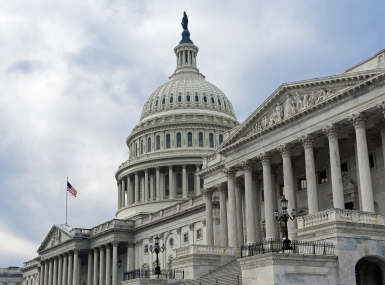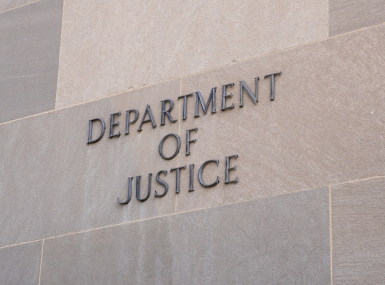Support the Protecting Community Television Act

Author

Seamus Dowdall
Upcoming Events
Related News
Action Needed
Urge your members of Congress to support the Protecting Community Television Act. Introduced by Sens. Ed Markey (D-Mass.) and Tammy Baldwin (D-Wis.) as S. 340 and Rep. Anna Eshoo (D-Calif.) as H.R. 907 in the 118th Congress, this legislation would amend the Communications Act of 1934 to reverse the Federal Communication Commission’s (FCC) 2019 order requiring that cable-related, in-kind contributions be subjected to the statutory five percent franchise fee cap.
Background
On August 1, 2019, the FCC adopted a ruling usurping local franchising authority. Under the FCC rule, cable related, in-kind contributions required by local franchising authorities are considered a “franchise fee.”
Franchise fees are used by local governments to maintain public rights-of-ways used by cable companies. Local franchising authorities often require cable providers to offer in-kind contributions, such as public, educational and government (PEG) channels, as a condition to a franchise agreement. These in-kind contributions, including PEG channels, provide significant public benefits to communities, including transparency and accountability through access to local and regional government meetings; educational programming including for-credit courses; coverage of local events; local election coverage; candidate forums; and public safety programming.
By considering in-kind contributions a “franchise fee,” the order requires the expense incurred by cable operators providing PEG channels be subject to a statutory five percent franchise fee cap established under the Communications Act of 1934. Subjecting in-kind contributions to the franchise fee cap has contributed to a reduction of 30 to 40 percent in franchise fees, resulting in a significant drop in local resources for PEG channels and a burden for county budgets who now have to decide between which public resources to support for schools, libraries and other community institutions.
The rule, which went into effect on September 26, 2019, allows cable companies to deduct the fair market value of any services required by a franchise agreement. This is leading to a disproportionate impact on smaller communities, where the revenue generated from a cable TV channel is more valuable than that generated in a large urban area.
Key Talking Points
- It is critical that counties retain the flexibility and resources afforded through cable franchise agreements to provide the public with regular access to community and local resources through maintenance of public, education and government (PEG) channels. This legislation helps ensure that PEG channels, which have provided critical information to the community for millions, can be maintained as a public good.
- Counties use public, education and government (PEG) channels as a key communicator of local activity by non-profits, schools and libraires, and other community stakeholders who rely upon access to communication with the public as a key to the success of their initiatives.
Related News

Congressional leaders introduce new legislation for a national data privacy framework
On April 7, U.S. House Energy and Commerce Committee Chair Cathy McMorris Rodgers (R-Wash.) and U.S. Senate Commerce, Science and Transportation Committee Chair Maria Cantwell (D-Wash.) introduced the American Privacy Rights Act.

DOJ issues final rule for state and local governments to implement web-based accessibility standards
On April 8, the U.S. Department of Justice (DOJ) announced the release of a web accessibility final rule for state and local governments.
